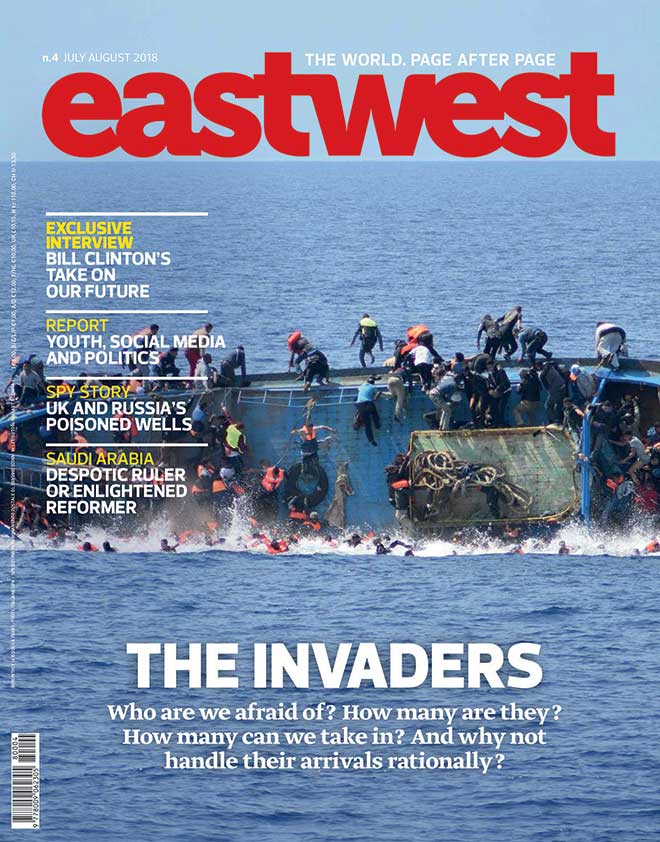
As we have often underlined, the only purpose of US President Donald Trump’s international engagement seems to involve uprooting any vestiges of Barack Obama’s accomplishments; in short, it’s an obsession. An outrageous case in point is the recent break with Iran, which deserves to be revisited, given the devastating effects it is having and will have in the future.
Based on the nuclear energy accord (Vienna, July 2015), Iran has accepted to destroy all its uranium reserves and to reduce its gas centrifuges by two-thirds to avoid the risk of nuclear proliferation. The agreement foresees that in exchange for Iran’s fulfilment of its commitments, it would obtain the termination of the economic sanctions imposed by the United States, the European Union and the UN Security Council, sanctions that have paralysed the country’s economy, costing it more than $160 billion in oil revenue between 2012 and 2016 alone.
Before July 2015, Iran had enriched uranium and almost 20,000 centrifuges, sufficient to create ten bombs in three months, according to the Obama administration, a time extended by a year with the restrictions foreseen by the agreement.
In exchange, Iran obtained access to over €100 billion of frozen assets held abroad and has been allowed to resume selling oil on international markets.
On 12 January, Donald Trump delivered an ultimatum to France, Great Britain and Germany – the European allies who are part of the agreement on Iranian nuclear energy (JCPOA) – asking them to introduce amendments to the agreement, specifically further tightening the inspections at nuclear sites. If Trump’s conditions weren’t met, the US would not renew the suspension of sanctions. However, the inspection regime set up in Iran is among the strictest in the world and even the International Agency for Atomic Energy (AIEA) has certified on a number of occasions that Iran has always permitted inspections at every site requested. Trump has never made a mystery that he believes the JCPOA to be more beneficial to Iran that the US, nor has he made any bones about his intention of fixing it or nixing it. This was openly suggested to Trump by Israeli Prime Minister Benjamin Netanyahu in a public presentation on 30 April during which he stated that Tel Aviv had “proof of the existence of a secret nuclear weapons programme that Iran has kept hidden from the international community”, demonstrating once more that each country has its own political obsessions.
However, Mr. Trump believed Netanyahu and on 8 May announced the United States’ withdrawal from the agreement and the reintroduction of sanctions, which have in fact been broadened to include the crucial energy, oil and financial sectors. Tehran has in the meantime stated it won’t back down from the agreement.
So a major and unprecedented rift has appeared on the western front. On the one hand, Washington has no interest in legitimising the Islamic Republic (in fact, many US political representatives openly speak of the need for a change of regime); on the other, the European Union intends to consolidate relations with Iran both from a trade perspective – even though it represents a minimal percentage of the EU’s total (0.6% IN 2017) – and from a political one, acknowledging Tehran has an essential partner for the solution of the Middle Eastern crisis.
The sustainability over time of major changes in international policy is a difficult value to assess without institutional experience.
Something similar is also taking place in Italy where a government featuring many new faces is having a hard time understanding that the historical choices regarding alliances and international positioning are mainly the result of a geopolitical and geo-economic location and it makes no sense to overturn this status quo for a minister’s whim, even if it may bolster consensus in the short term.
As we have often underlined, the only purpose of US President Donald Trump’s international engagement seems to involve uprooting any vestiges of Barack Obama’s accomplishments; in short, it’s an obsession. An outrageous case in point is the recent break with Iran, which deserves to be revisited, given the devastating effects it is having and will have in the future.
Based on the nuclear energy accord (Vienna, July 2015), Iran has accepted to destroy all its uranium reserves and to reduce its gas centrifuges by two-thirds to avoid the risk of nuclear proliferation. The agreement foresees that in exchange for Iran’s fulfilment of its commitments, it would obtain the termination of the economic sanctions imposed by the United States, the European Union and the UN Security Council, sanctions that have paralysed the country’s economy, costing it more than $160 billion in oil revenue between 2012 and 2016 alone.





